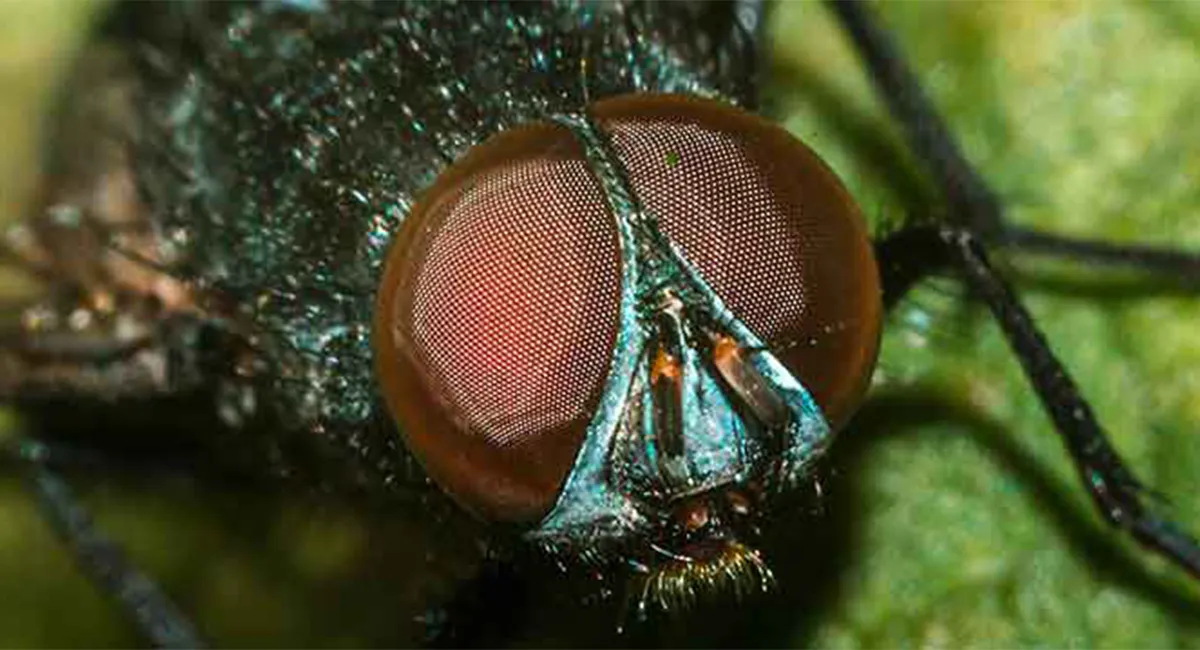myRentokil
Access the online reporting system
During a fly’s lifetime (around 30 days), a female will lay between 400-600 eggs.
Based on this fact, it is easy to see how a small problem can quickly turn into a large infestation if you do nothing to control flies.
Several fly species are attracted to food odours generated in homes, commercial kitchens, retail stores, food processing factories and farms. These include house flies, fruit flies, drain flies and blow flies. Different fly species are attracted to different food products, including fermenting sugars, oils and fats, carbohydrates, and decaying proteins and vegetable matter.
Some practical measures to get rid of flies are given below:
Do you have a fly problem? Contact us now for a professional solution.

For controlling flies it is important to identify which type of fly is present as each has different attractants, breeding habits and specific procedures for controlling:
House flies: breed in decomposing waste such as rotting food and animal faeces, and are attracted by general food smells
Fruit flies: are attracted to fermenting sugary liquids, in which they can feed and breed in very small amounts — in bars, kitchens and restaurants. The liquid can accumulate in:
Drain flies: are attracted to rotting food, sewage and other organic waste material. They lay eggs in organic waste that can build up in drains or polluted shallow water. They can breed in the gelatinous bacterial films — biofilms — that form on surfaces in drains, septic tanks, compost, and are resistant to cleaning and pest-control chemicals
Blow flies: lay eggs in rotting meat, including kitchen and restaurant waste, and dead rats, mice and pigeons
Once a problem has been identified, there are simple ways you can get rid of flies and reduce their numbers on your property, such as:
Make some practical, cost-free changes around your premises to deter flies. This may be as simple as doing some thorough deep-cleaning. See some tips below
Use some low-cost DIY fly products, which may sometimes require time to install but could further help your efforts at fly control
Get professional fly control from certified and experienced Rentokil pest control experts (certified by AEPMA, the Australian Environmental Pest Management Association) to guarantee a long-term solution to your fly problem.
Contact us now for a professional solution to your fly problem

If you have a fly problem the first step is to take these easy practical measures to stop flies having access to food and liquids around your property. These steps will also help to prevent flies returning:
Keep food covered: any type of food, even crumbs, can attract flies and encourage them to lay eggs nearby. Leftovers should be carefully covered up. Their contact with your food is also main cause of food contamination
Deny access to water: fix leaky taps and blocked drains where water can gather. Flies need moisture to survive
Practice good food hygiene: keep your food areas, garbage containers, sinks and drains clean and dispose of garbage regularly to prevent it attracting flies or becoming a fly breeding site. Liquid food sources for flies can accumulate in various places due to poor hygiene practices, such as:
Cover entry points: fit fly screens to windows and keep windows and doors shut
Install a fly killer unit: fly killers are essential for capturing flies in businesses handling food
Keep bird feeders clean: keep them clean and remove bird food before dusk
Remove clutter: eliminate clutter in your business, home and garden; messy sites could provide breeding places for flies
Using a professional fly control service is the most effective way to guarantee the complete removal of flies from your premises. Your Rentokil expert will follow an integrated approach to ensure your long-term protection. We call this ERDM:

The exclusion stage focuses on fly prevention through physical barriers and maintenance to prevent fly infestations via recommendations relating to waste management, cleaning and sanitation.
The restriction stage addresses actions to take following an identified fly problem on site. It will include removal of food sources and potential fly breeding sites.
This stage will use the correct fly control treatment for your individual circumstances. The objective of this stage is to enable effective fly control, through the use of innovative treatments, including non-toxic solutions where available and required in order to comply with strict regulations for pesticide use.
Integrated Pest Management programs are continuously evaluated to monitor pest levels and to keep customers informed on sanitation levels in order to prevent new pest problems. In addition to monitoring practices, we provide thorough documentation of pest activity and any pesticide application used during a service visit.
Once a survey of your premises is complete, your Rentokil expert will recommend a fly control program specially for your needs. It may include one, or a combination, of the following:
Contact us for a professional solution to get rid of and prevent flies
Protecting Australian homes and businesses for over 50 years